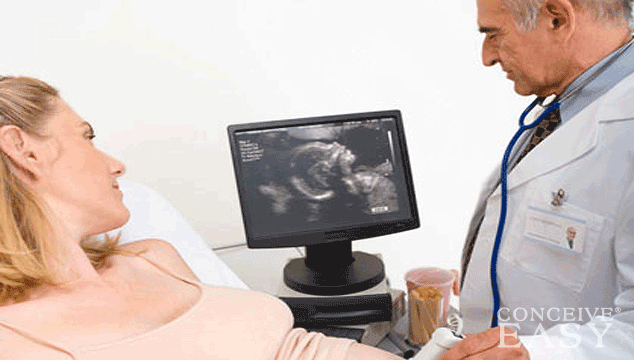![]() The information provided by our expert should not constitute a diagnosis of your condition. Always consult a medical practitioner or healthcare provider for a formal diagnosis. By making use of this content, you agree that ConceiveEasy and the expert assume no liability.
The information provided by our expert should not constitute a diagnosis of your condition. Always consult a medical practitioner or healthcare provider for a formal diagnosis. By making use of this content, you agree that ConceiveEasy and the expert assume no liability.

Prenatal diagnosis is a way to determine before birth whether or not a baby has any potential genetic problems before birth. Women who are at a higher risk of having babies with genetic disorders might choose to have prenatal testing done in order to find out before birth if a potential problem exists. Claim Your 20 Free Pregnancy Tests – Click Here
Not all pregnant women will need to undergo prenatal testing. Some reasons that a woman might consider having prenatal testing done include being older than 35, or if a woman has previously had a child with a genetic disorder. If a woman or her partner are known carriers of a genetic disorder, they might want to consider prenatal diagnosis as well.

Amniocentesis is performed by inserting a thin needle through the abdomen and into the uterus and removing a sample of amniotic fluid. The fluid is then sent to a lab for analysis. The baby is not in any danger during this procedure, and the body reproduces the fluid that was taken out.
Sometimes a woman experiences mild cramps after the procedure, but it is not usually painful. Normal activity can be resumed later the same day or the following day. This test is usually done during the 15th week of pregnancy or sometimes later.
Amnio is good for if you have had a previous problem with neural tube defects. There are times when an amnio test is better than a CVS, depending on what your doctor needs to test for.

A Chorionic Villus Sampling test, or CVS, is done much like an amniocentesis. In a CVS test, a small sample of the placenta is withdrawn through a catheter in the cervix. It can also be done by inserting a needle into the abdomen. Some women do have mild spotting or bleeding afterwards, but no discomfort is usually involved.
The CVS test is usually performed between weeks 10 and 12 of pregnancy. The CVS test is great if you and your doctor want to know the results during your first trimester. There are some situations where one test might be better than another, so your doctor will be able to recommend one.
If you are at risk for having a baby with a genetic defect, your doctor might order these tests for you. Don’t stress if these tests are ordered for you. There are minimal risks involved in these tests, but if you have any questions, ask your doctor for more information.










Comments